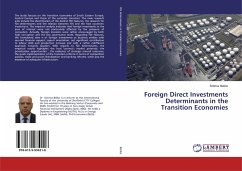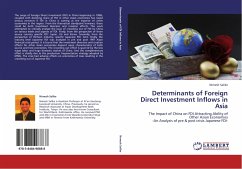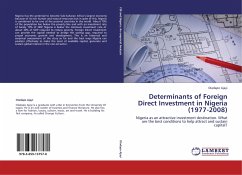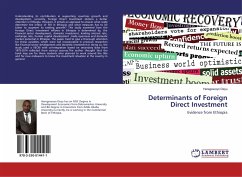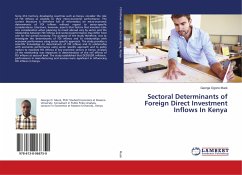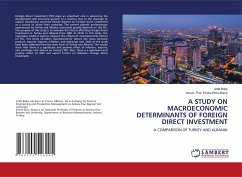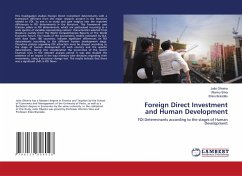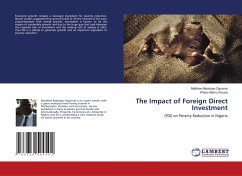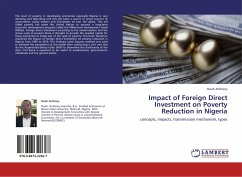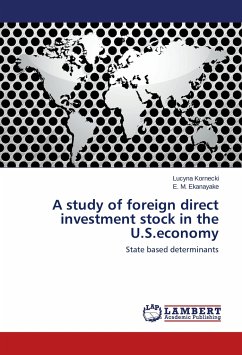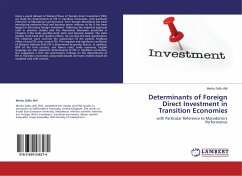
Determinants of Foreign Direct Investment in Transition Economies
with Particular Reference to Macedonia's Performance
Versandkostenfrei!
Versandfertig in 6-10 Tagen
16,99 €
inkl. MwSt.

PAYBACK Punkte
8 °P sammeln!
Using a panel dataset of bilateral flows of foreign direct investment (FDI), we study the determinants of FDI in transition economies, with particular reference to Macedonia s performance. Even though Macedonia has been introducing extensive fiscal and business sector reforms, so far it has been lagged in attracting foreign investment. Following the empirical approach used in previous studies and the theoretical discussion presented in Chapters 2 this study specifies both static and dynamic models. The static models, both fixed and random effects, do not give the best specification. The empiri...
Using a panel dataset of bilateral flows of foreign direct investment (FDI), we study the determinants of FDI in transition economies, with particular reference to Macedonia s performance. Even though Macedonia has been introducing extensive fiscal and business sector reforms, so far it has been lagged in attracting foreign investment. Following the empirical approach used in previous studies and the theoretical discussion presented in Chapters 2 this study specifies both static and dynamic models. The static models, both fixed and random effects, do not give the best specification. The empirical work confirms the expectation of the positive feedback effect of past FDI onto current FDI. The negative and significant coefficient of distance indicates that FDI is determined by gravity factors. In addition, GDP of the host country, unit labour costs, trade openness, English language are also important determinants of FDI in transition economies. Our suggestion is that the econometricfindings on the determinants of FDI in transition economies using small dataset and static models should be accepted only with caution.



